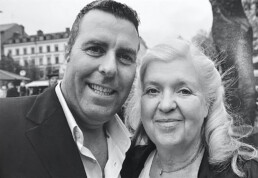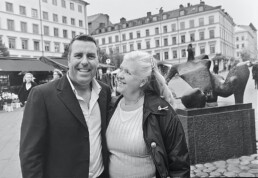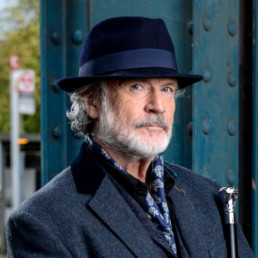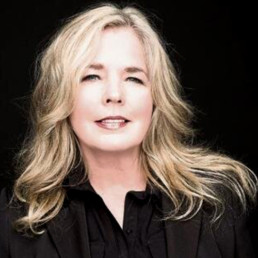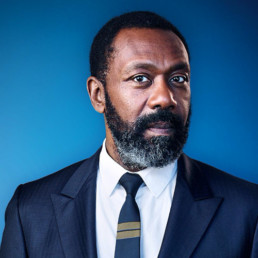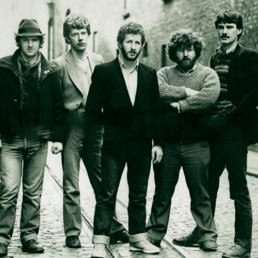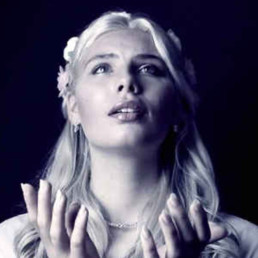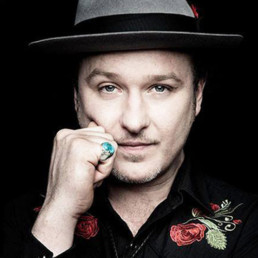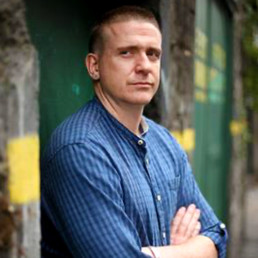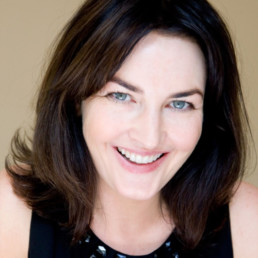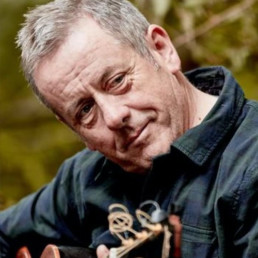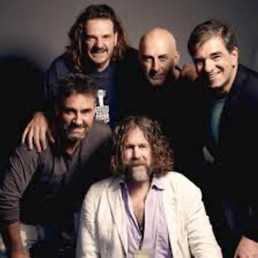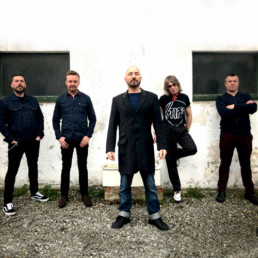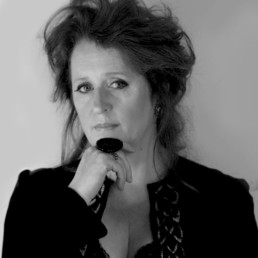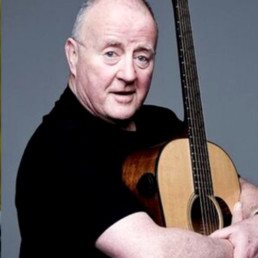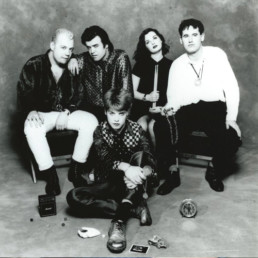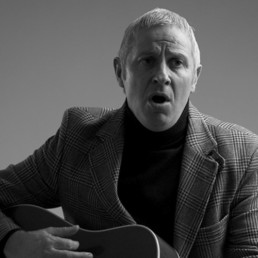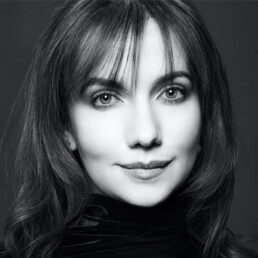Welcome to the Bel Canto School of Singing
You are about to discover your true vocal potential. Whether you struggle with vocal confidence or think your voice is lost forever, we are here to help you free your true voice. With the Bel Canto singing legacy we have kept alive in our school for over 8 decades of combined teaching experience, we are looking forward to welcoming you as our next student.
To your vocal freedom,
Frank Merriman & Edwin Williamson
You are about to discover your true vocal potential. Whether you struggle with vocal confidence or think your voice is lost forever, we are here to help you free your true voice. With the Bel Canto singing legacy we have kept alive in our school for over 8 decades of combined teaching experience, we are looking forward welcoming you as our next student.
To your vocal freedom,
Frank Merriman & Edwin Williamson
Important Announcement
Please be aware that before you book and complete your payment that all voice assessments and singing classes are only conducted virtually and that in person classes are no longer offered. We understand that this may be disappointing to some, however, we wish to assure you that the value of virtual classes and in person classes are exactly the same due to the principle of Bel Canto teaching.
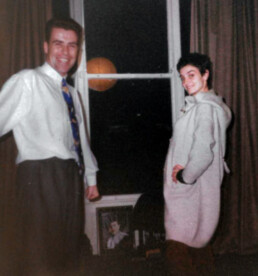
Sinéad O'Connor
December 8, 1966 - July 26, 2023
It is with Heavy Hearts that we offer our deepest sympathies to Jake, Roisin, Yeshua on the passing of their Mother. And to John & Viola and the entire O'Connor family at this sad time on the passing of Sinéad and to her friends and fans all over the World. We will fondly remember the good times we had working with Sinéad. She will be sadly missed, but has left a great legacy behind with her singing. She has now finally reunited with Shane and is at Peace. Thank you for the memories, Sinéad. Rest in Peace.
– Frank & Edwin
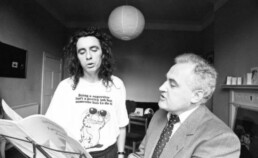
Christy Dignam
May 23, 2023 - June 13, 2023
Our deepest sympathies to Kathryn Kiera and family, the lads from Aslan, the thousands of fans all around this crazy world at the passing of Christy... Rest in Peace Christy and thank you for the memories. Here you are with Frank doing what you loved...
– Frank & Edwin
We are currently in mourning due to the passing of Christy Dignam & Sinéad O'Connor. We will not conduct any singing classes or voice assessments until August 6th, 2023.
The Teachers
" Bel Canto is continued with success through the Bel Canto House in Dublin.My grandfather’s legacy will remain. "
— John McCormack's Grandson
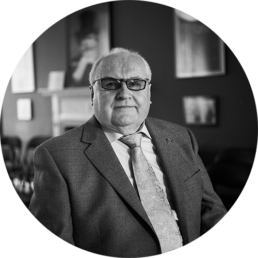
Frank Merriman
Founder & Singing Teacher at Bel Canto School of Singing in Dublin, Ireland
What is Bel Canto Singing?
The term “Bel Canto” is often thrown about quite loosely in modern times, but in fact the term “Bel Canto” has a very real and specific meaning in the singing history, literally translated as “beautiful singing” in Italian. Bel Canto – It’s all about the storytelling. The term “Bel Canto” was coined during the 1800s in Italy to describe the kind of singing that composers like Rossini, Bellini and Donizetti endeavored to promote with deeply expressive opera compositions. They were holding fast to the Old School of singing. The greatest singers that the world has ever known have been “Bel Canto” singers. Most of them are primarily associated with opera singing, but they are not limited to any particular style of music, and many of them have demonstrated their immense artistry by singing a variety of styles and genres with effortless beauty.
Studying Bel Canto Singing
It’s not so often that someone can say that they have made a real contribution to the art that he or she serves. We are both proud and humbled to add our own human touch to the enduring and ever-evolving art of Bel Canto singing, as our teachers did before us and their teachers did before them. Our gift to the art of Bel Canto is the message of storytelling.
" Bel Canto is a singing art that must be imparted from teacher to student over time and intensive study. "
In the historical manner of study, the Bel Canto instructor would have the student sing an aria or other song until he or she brought forth a particularly beautiful phrase sung with crystal clarity. At that point the student was instructed to repeat that word or short phrase over and over exactly as he or she has just done it, in order for the student to become accustomed to singing so clearly. Intensive work was also done with regards to pronunciation of words, particularly the vowels in the words. The teacher continued to guide the student with these disciplines until the student finally achieved the ability to sing clearly and consistently without vocal difficulties every time until he reached Vocal Freedom.
The Lineage
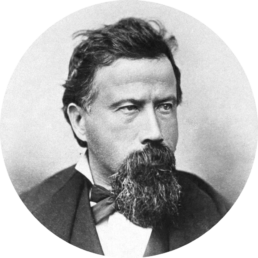
Amilcare Ponchielli
1834-1886

Amilcare Ponchielli was a Bel Canto composer of the 19th century. His tenor aria “Cielo e Mar” in the opera La Gioconda embodies the true spirit of Bel Canto singing because it requires the singer to really use his imagination to create a dreamy, heavenly effect that the audience can clearly understand.
Ponchielli suffered in his early career because he was ill-equipped to negotiate the politically driven, back-biting world of the established music societies of his day and the wealthy bourgeoisie which controlled them. For a time he was forced to take whatever work he could find, taking jobs such as band leader in Piacenza and in Cremona. He was known among his peers to be a man of absolute honesty and moral rectitude. He believed that success in any musical career should be based solely on true ability and professionalism and a true love of the art.
Ponchielli was known to feel strongly about any pressure from the impresario who employed him to make his compositions too complicated, and he was a proponent of simple straightforward melody and clarity that was not bogged down in confusion. He was a contemporary of Giuseppe Verdi, who mourned the occasion of Ponchielli’s death, saying the world has lost “a worthy man and a most distinguished artist”.

Amilcare Ponchielli
1834-1886
Amilcare Ponchielli was a Bel Canto composer of the 19th century. His tenor aria “Cielo e Mar” in the opera La Gioconda embodies the true spirit of Bel Canto singing because it requires the singer to really use his imagination to create a dreamy, heavenly effect that the audience can clearly understand.
Ponchielli suffered in his early career because he was ill-equipped to negotiate the politically driven, back-biting world of the established music societies of his day and the wealthy bourgeoisie which controlled them. For a time he was forced to take whatever work he could find, taking jobs such as band leader in Piacenza and in Cremona. He was known among his peers to be a man of absolute honesty and moral rectitude. He believed that success in any musical career should be based solely on true ability and professionalism and a true love of the art.
Ponchielli was known to feel strongly about any pressure from the impresario who employed him to make his compositions too complicated, and he was a proponent of simple straightforward melody and clarity that was not bogged down in confusion. He was a contemporary of Giuseppe Verdi, who mourned the occasion of Ponchielli’s death, saying the world has lost “a worthy man and a most distinguished artist”.
Singer-composer Corrado Pavesi-Negri brought a wealth of life experience to his art. He had studied jurisprudence at the University of Parma and he also fought in the wars of Italian independence. He had a talent for learning different languages and he traveled a great deal in Europe.
Pavesi-Negri studied music and singing with Giovanni Quacquerini, Giovanni Rossi and Amilcare Ponchielli. He was made a master composer in the Academia Filarmonica of Bologna in 1877, and he wrote and published a biography of singer Rosmunda Pisaroni.
Pavesi-Negri lived in Florence, Italy for 36 years, where he concentrated his efforts as a singing teacher, producing some of the more accomplished students of his day, including Italo Cristalli, Angelo Masini, Amedeo Bassi, Enrico Ventura and Nunzio Rapisardi. Pavesi-Negri himself was also known to be a fine baritone singer who gave some beautiful performances during his lifetime.
Eventually he retired to his hometown of Piacenza, Italy, where he was a great support to the Musical High School there. He left his entire library to them after his death.
He was the singing teacher of Italo Cristalli.
Corrado Pavesi-Negri
1841-1920

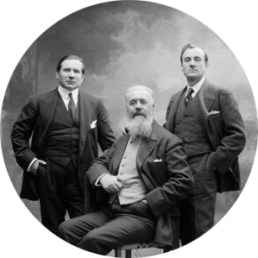

Corrado Pavesi-Negri
1841-1920
Singer-composer Corrado Pavesi-Negri brought a wealth of life experience to his art. He had studied jurisprudence at the University of Parma and he also fought in the wars of Italian independence. He had a talent for learning different languages and he traveled a great deal in Europe.
Pavesi-Negri studied music and singing with Giovanni Quacquerini, Giovanni Rossi and Amilcare Ponchielli. He was made a master composer in the Academia Filarmonica of Bologna in 1877, and he wrote and published a biography of singer Rosmunda Pisaroni.
Pavesi-Negri lived in Florence, Italy for 36 years, where he concentrated his efforts as a singing teacher, producing some of the more accomplished students of his day, including Italo Cristalli, Angelo Masini, Amedeo Bassi, Enrico Ventura and Nunzio Rapisardi. Pavesi-Negri himself was also known to be a fine baritone singer who gave some beautiful performances during his lifetime.
Eventually he retired to his hometown of Piacenza, Italy, where he was a great support to the Musical High School there. He left his entire library to them after his death.
He was the singing teacher of Italo Cristalli.
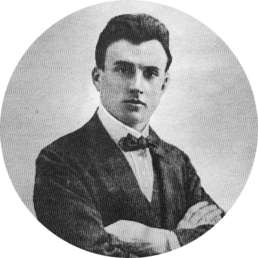
Italo Cristalli
1879-1932

Italo Cristalli was a spinto tenor from Piacenza, Italy who made his opera debut in “La Boheme” in Torino in the year 1900. He studied at the Musical a High School of Piacenza with Tito Piroli and he studied in Florence with the singer-composer Corrado Pavesi Negri.
Cristalli enjoyed a substantial international career for many years. He was successful as a verismo singer, with a distinct sense of style, clarity and command in his voice. He was one of the few Italian singers who had a voice for the works of Wagner. He performed throughout Italy and in 1911 he joined Pietro Mascagni for a series of concerts in South America. He came to the United States and sang with the Metropolitan Opera of New York from 1913 to 1914.
During his year with the Met, Cristalli was one of the few tenors who had the honour of singing with the great conductor Toscanini, the other tenors being Enrico Caruso and Giovani Martinelli. He sang tenor in an opening act before Caruso on several nights, including his last performance with the Met in Atlanta, Georgia on May 2, 1914.
By the mid- 1920s Cristalli returned to his home town of Piacenza and only gave performances in smaller, out-of-the-way locations. He died at the early age of 52.
Italo Cristalli was the singing teacher of Julian Miller.

Italo Cristalli
1879-1932
Italo Cristalli was a spinto tenor from Piacenza, Italy who made his opera debut in “La Boheme” in Torino in the year 1900. He studied at the Musical a High School of Piacenza with Tito Piroli and he studied in Florence with the singer-composer Corrado Pavesi Negri.
Cristalli enjoyed a substantial international career for many years. He was successful as a verismo singer, with a distinct sense of style, clarity and command in his voice. He was one of the few Italian singers who had a voice for the works of Wagner. He performed throughout Italy and in 1911 he joined Pietro Mascagni for a series of concerts in South America. He came to the United States and sang with the Metropolitan Opera of New York from 1913 to 1914.
During his year with the Met, Cristalli was one of the few tenors who had the honour of singing with the great conductor Toscanini, the other tenors being Enrico Caruso and Giovani Martinelli. He sang tenor in an opening act before Caruso on several nights, including his last performance with the Met in Atlanta, Georgia on May 2, 1914.
By the mid- 1920s Cristalli returned to his home town of Piacenza and only gave performances in smaller, out-of-the-way locations. He died at the early age of 52.
Italo Cristalli was the singing teacher of Julian Miller.
Julian Miller was the singing teacher who guided Frank Merriman to his own VOCAL FREEDOM. He instilled in him a great love for the art of singing
Born in Calcutta, India, Julian Miller studied singing with Ernesto Beraldi and Italo Cristalli. He always credited Italo Cristalli as the teacher that showed him the riches of Bel Canto. Frank considers himself very fortunate to have met an authentic teacher who was one of the few remaining true exponents of Bel Canto Singing and VOCAL FREEDOM.
When Julian Miller listened to Frank sing the first time, he told him discouragingly: “You’d have to sweat blood to get your voice right!” Frank replied that if that’s what was needed, that’s what he would do. He had to be persistent with Julian, but Julian eventually liked Frank’s determination so much that he agreed to become Frank’s teacher, and they worked together for over four years both in London and at the G.B. Martini Conservatorio in Bologna, Italy.
For over four years, Julian Miller guided Frank Merriman through the intensive traditional training that all Bel Canto singers receive. He taught him how to clean the vocal resonators, he taught him the importance of pronunciation to overall vocal function and he taught him a proper vocabulary, which truly helped Frank to overcome his language difficulties from having left school at a very young age.
He intuitively taught Frank things that he wasn’t aware he was learning at the time.
At an early stage in his training Julian Miller began to encourage Frank to become a teacher, though nothing could have been further from his mind in those days. He wanted to get up on a stage and sing his heart out! In fact, Julian had a better insight into Frank’s spirit than he realized, and thanks to Julian he has had a most rich rewarding life as a teacher of Bel Canto.
Julian Miller
1911-1989

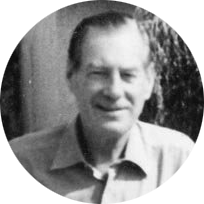

Julian Miller
1911-1989
Julian Miller was the singing teacher who guided Frank Merriman to his own VOCAL FREEDOM. He instilled in him a great love for the art of singing
Born in Calcutta, India, Julian Miller studied singing with Ernesto Beraldi and Italo Cristalli. He always credited Italo Cristalli as the teacher that showed him the riches of Bel Canto. Frank considers himself very fortunate to have met an authentic teacher who was one of the few remaining true exponents of Bel Canto Singing and VOCAL FREEDOM.
When Julian Miller listened to Frank sing the first time, he told him discouragingly: “You’d have to sweat blood to get your voice right!” Frank replied that if that’s what was needed, that’s what he would do. He had to be persistent with Julian, but Julian eventually liked Frank’s determination so much that he agreed to become Frank’s teacher, and they worked together for over four years both in London and at the G.B. Martini Conservatorio in Bologna, Italy.
For over four years, Julian Miller guided Frank Merriman through the intensive traditional training that all Bel Canto singers receive. He taught him how to clean the vocal resonators, he taught him the importance of pronunciation to overall vocal function and he taught him a proper vocabulary, which truly helped Frank to overcome his language difficulties from having left school at a very young age.
He intuitively taught Frank things that he wasn’t aware he was learning at the time.
At an early stage in his training Julian Miller began to encourage Frank to become a teacher, though nothing could have been further from his mind in those days. He wanted to get up on a stage and sing his heart out! In fact, Julian had a better insight into Frank’s spirit than he realized, and thanks to Julian he has had a most rich rewarding life as a teacher of Bel Canto.

Frank Merriman
Present

Though he learned Bel Canto from his own teacher Julian Miller in a more traditional and conventional way, Frank Merriman realized through his own work that the singers who made the most enduring impact on the singing world through their artistry were the ones who focused all of their efforts on telling the story of the song. The true essence of the expressive Bel Canto artistry in singers like Jean de Reske, John McCormack, Zinka Milanov and Jussi Bjorling came from storytelling. Telling the story was what allowed them to use their voices effortlessly in the most beautiful, powerful and natural way. Frank made sure to tell the story every time he opened his mouth to sing.
He began teaching singing when co-performers in the opera company he was a member of in Dusseldorf, Germany started asking him to help them improve their performances. Having eventually realized that over half the entire opera company were coming to him for singing lessons, Frank decided that becoming a full-time teacher was the life he was born for.
He taught in Germany for a period and following that for several years in London.
When he came back to Dublin to teach singing in 1983, he expanded his teaching base to include not only classical singers, but also singers from other styles of music such as Irish folk singers, pop singers, showband singers and rock and roll singers.
Frank is responsible for having revolutionized the Bel Canto tradition by taking it out of the opera house and putting it into the hands (and voices) of all.
Thus a new singing tradition, unique to World, was born: “Bel Canto Storytelling.”.

Frank Merriman
Present
Though he learned Bel Canto from his own teacher Julian Miller in a more traditional and conventional way, Frank Merriman realized through his own work that the singers who made the most enduring impact on the singing world through their artistry were the ones who focused all of their efforts on telling the story of the song. The true essence of the expressive Bel Canto artistry in singers like Jean de Reske, John McCormack, Zinka Milanov and Jussi Bjorling came from storytelling. Telling the story was what allowed them to use their voices effortlessly in the most beautiful, powerful and natural way. Frank made sure to tell the story every time he opened his mouth to sing.
He began teaching singing when co-performers in the opera company he was a member of in Dusseldorf, Germany started asking him to help them improve their performances. Having eventually realized that over half the entire opera company were coming to him for singing lessons, Frank decided that becoming a full-time teacher was the life he was born for.
He taught in Germany for a period and following that for several years in London.
When he came back to Dublin to teach singing in 1983, he expanded his teaching base to include not only classical singers, but also singers from other styles of music such as Irish folk singers, pop singers, showband singers and rock and roll singers.
Frank is responsible for having revolutionized the Bel Canto tradition by taking it out of the opera house and putting it into the hands (and voices) of all.
Thus a new singing tradition, unique to World, was born: “Bel Canto Storytelling.”.
Edwin came to Bel Canto House School of Singing in 1987. It was obvious even then that he had a tremendous gift for singing and a facility for learning that was quite rare. He adapted quite quickly to the way of Bel Canto Storytelling and having studied in the school for some time he worked his way to VOCAL FREEDOM.
Edwin has performed extensively in Ireland, Europe, North Africa and United States. His talent and skill as a singer and songwriter has been recognized in his success at international singing and songwriting competition venues all over the world in various languages:
In recent times he has worked in Vilnius Opera house Lithuania with soprano Olga Eleonora Taskinaite and Piano Alexandras Vispares.
Edwin is a real Bel Canto Singer and has been called the singer’s singer. He has helped many singers to achieve remarkable results all over the world, and he does much of the training and coaching of the advanced singers and commercially successful performers who come to the school. He has done vocal pre-production and production in recording studios for various artists.
Edwin really likes the challenge of working with people who think their singing voice is irretrievable.
Edwin Williamson
Present



Edwin Williamson
Present
Edwin came to Bel Canto House School of Singing in 1987. It was obvious even then that he had a tremendous gift for singing and a facility for learning that was quite rare. He adapted quite quickly to the way of Bel Canto Storytelling and having studied in the school for some time he worked his way to VOCAL FREEDOM.
Edwin has performed extensively in Ireland, Europe, North Africa and United States. His talent and skill as a singer and songwriter has been recognized in his success at international singing and songwriting competition venues all over the world in various languages:
In recent times he has worked in Vilnius Opera house Lithuania with soprano Olga Eleonora Taskinaite and Piano Alexandras Vispares.
Edwin is a real Bel Canto Singer and has been called the singer’s singer. He has helped many singers to achieve remarkable results all over the world, and he does much of the training and coaching of the advanced singers and commercially successful performers who come to the school. He has done vocal pre-production and production in recording studios for various artists.
Edwin really likes the challenge of working with people who think their singing voice is irretrievable.
While many will try to claim to teach what we are teaching here at the Bel Canto School of Singing please be aware that Frank Merriman and Edwin Williamson are the only approved singing teachers in the world to be teaching here at the school what has been passed down from generation to generation since 1834.
Jussi Björling
Jussi Björling
Jussi Björling
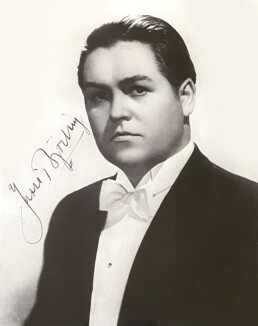
Jussi Björling Swedish Tenor 1911 - 1960
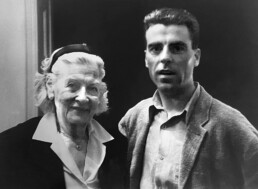
Anna-Lisa Björling wife of Swedish Tenor Jussi Björling meeting with Edwin Williamson at their apartment in Sweden in 1994
Jussi Björling was a Swedish Tenor born in 1911 and passed away in 1960 at the age of 49. He is considered the last great Bel Canto singer and has been a huge inspiration to the Bel Canto School of Singing in Dublin. Edwin Williamson met with his wife Anna-Lisa Björling at their apartment in Sweden in 1994. And then with their daughter Ann-Charlotte Björling in 2007.
